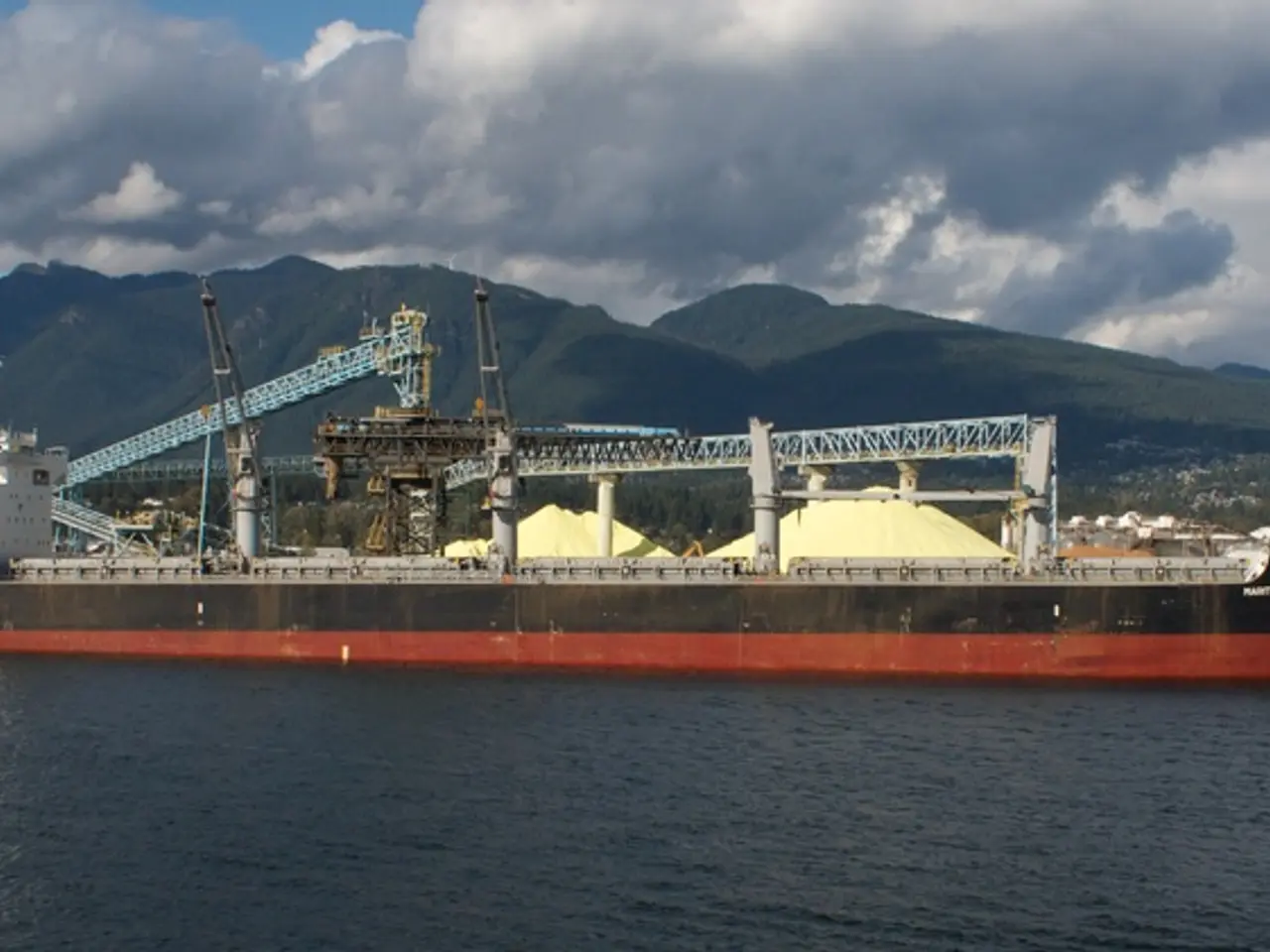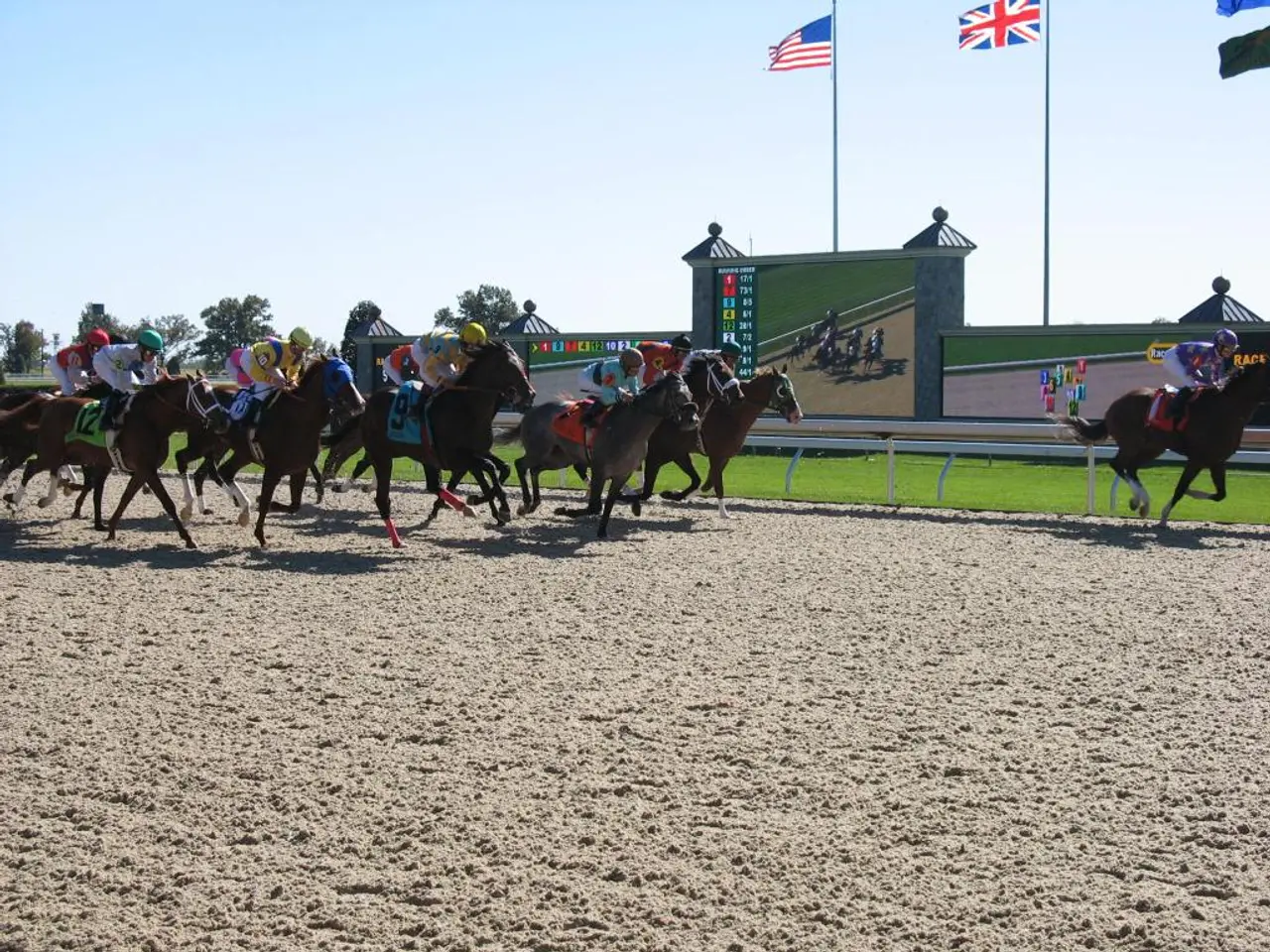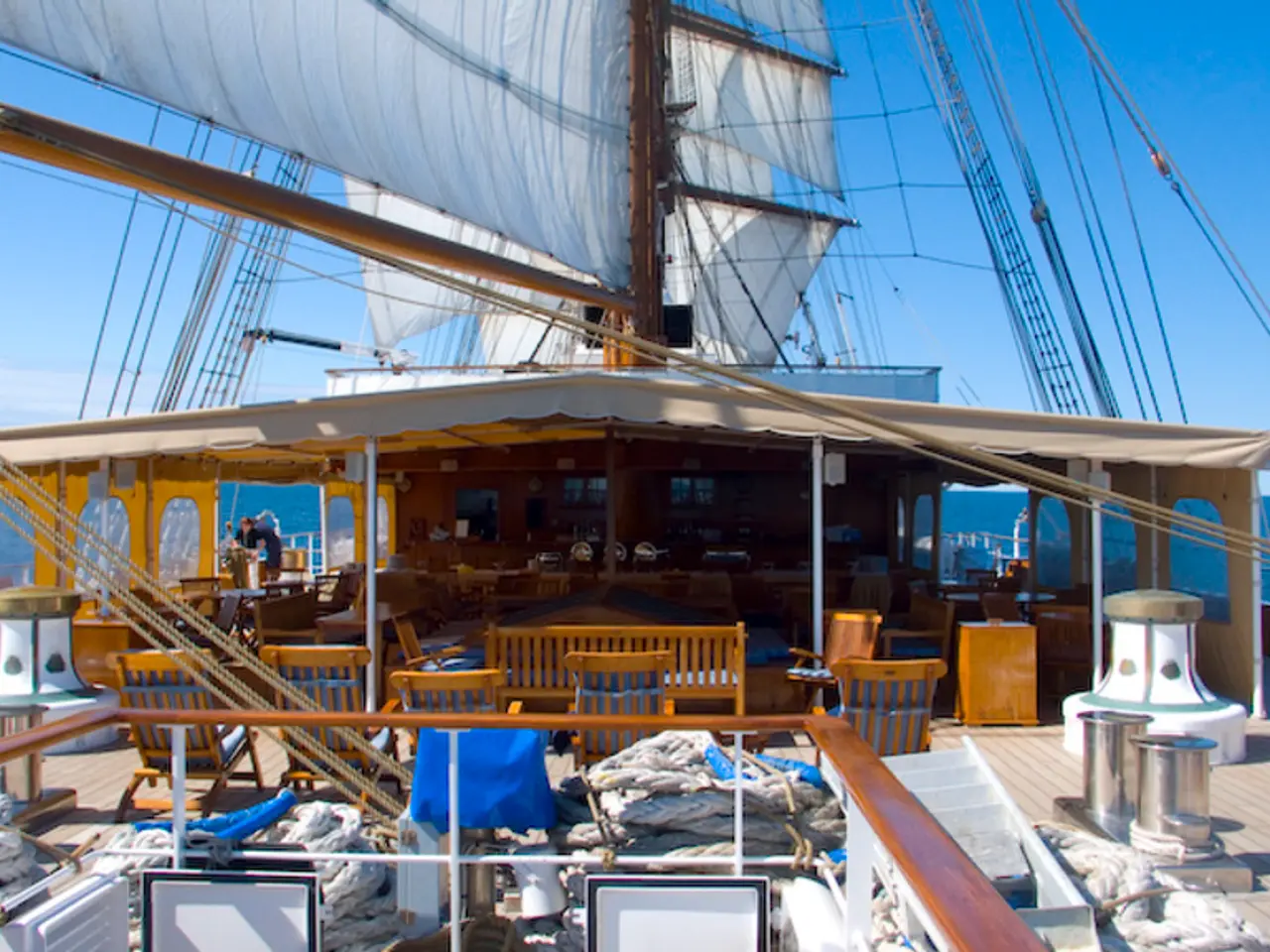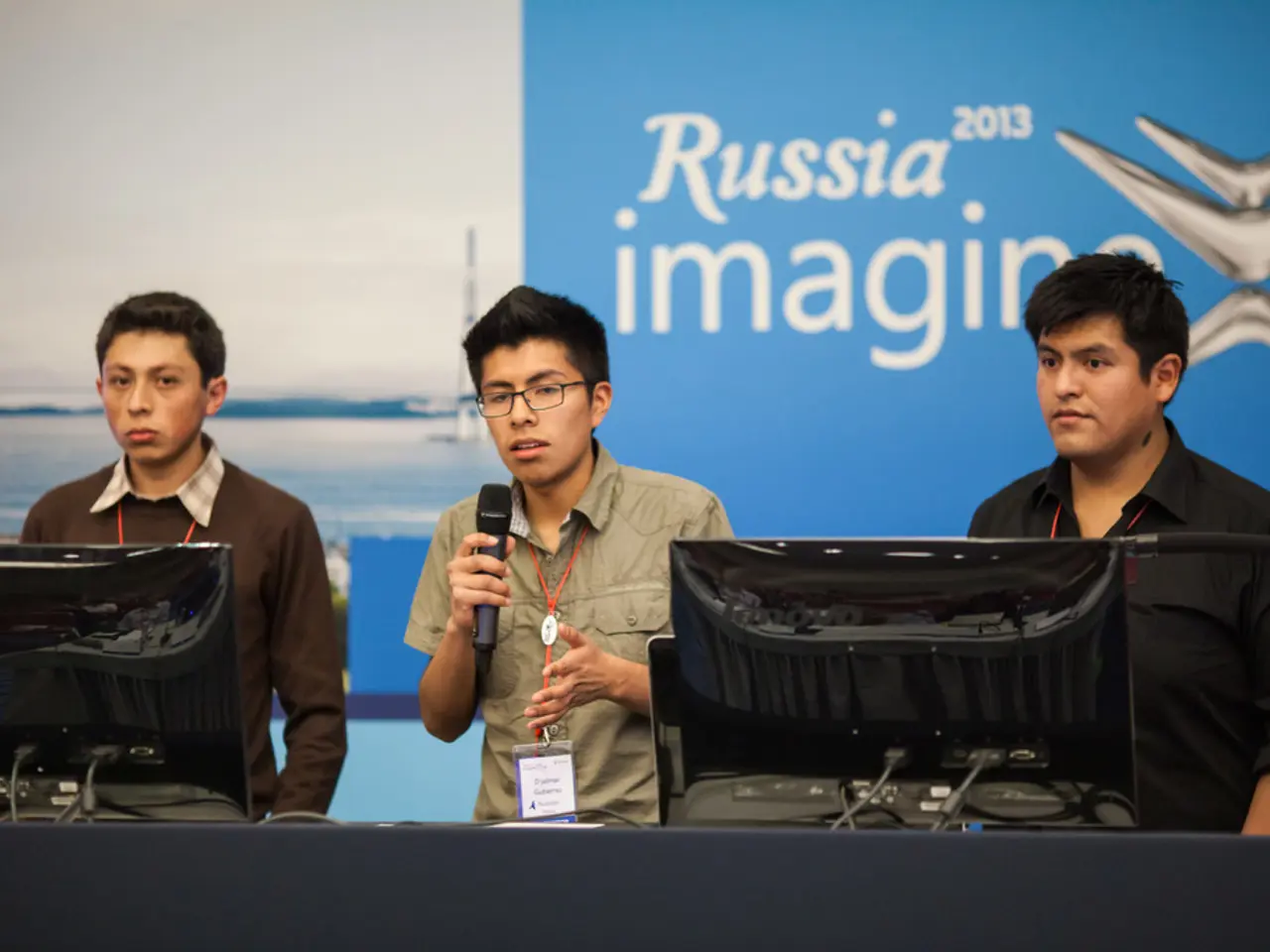Sailing's prestigious America's Cup heads to Naples, yet concerns about the weather conditions linger. An expert analysis provides insights on the competition's likely outcomes.
The 38th America's Cup, set to take place in Naples, Italy in 2027, promises to offer a unique sailing experience for the high-performance AC75 class yachts. The racing area will be located between the iconic Castel dell'Ovo and Posillipo, in the picturesque Gulf of Naples.
The Mediterranean setting provides a different wind and sea state compared to previous venues like Auckland or Valencia. The region is known for relatively warm waters and typically moderate winds, with the Mistral wind playing a crucial role in shaping race-day tactics and boat performance.
The Mistral, a strong, cold northwesterly wind that blows through the Rhône valley and into the Mediterranean Sea, can create strong and gusty winds favorable to high-speed AC75 racing. However, it can also bring challenging gusts and choppy seas that test boat handling and tactics.
AC75 yachts—foiling monohulls designed to maximize speed and maneuverability in upwind and downwind legs—will have to contend with the tactical variability presented by such intermittent and powerful winds like the Mistral, requiring keen skill and responsiveness from teams.
The event's organization has seen some political and procedural complexities. The Royal Yacht Squadron, the Challenger of Record, initially refused to sign the 38th America's Cup Protocol, delaying the formal opening of entries. However, the Defender (Team New Zealand) decided to host the Cup in Naples following decisions not to back a 2027 campaign in Auckland by New Zealand's Ministry of Business and Innovation.
The Italian challenger, Luna Rossa, shifted representation from the Sicilian Circolo della Vela Sicilia to the Naples-based Circolo del Remo e della Vela Italia, the oldest sailing club in Naples (founded 1889), signaling local pride and deeper integration with the host city’s sailing community.
These political and organizational decisions can influence event logistics, sponsorship, local engagement, and access to optimal sailing conditions through infrastructure investment and regulatory support.
The current in the Gulf of Naples is typically aligned with the wind direction, with exceptions during strong offshore winds that persist for several days. Racing in August is not advisable due to the high volume of commercial ferries, private yachts, and boats in the area. In Luciano Cosentino's experience, the best sailing conditions in Naples are typically between mid-May and mid-June.
September is a month of lighter, potentially more unstable winds, with typical speeds of 8-12 knots. October is as unpredictable as April, with unstable weather conditions. A change in wind direction could cause a temporary misalignment between the current and the wind, affecting the first start or so.
Despite these challenges, the America's Cup event in Naples is expected to be well-supported and vibrant, attracting more teams due to being in a European time zone. The event should boost its broadcast appeal, offering a dynamic and challenging sailing stage for the cutting-edge AC75 yachts. The official communication suggests the regattas will take place opposite Castel dell'Ovo, where most Naples' sailing clubs are based.
In summary, the sailing in Naples for AC75s will feature Mediterranean wind and sea conditions, with the Mistral wind playing a crucial role in shaping race-day tactics and boat performance. Local politics and organizational decisions, such as the venue selection and club representation, impact the event's smooth execution and the competitive environment. The presence of the Mistral and other Mediterranean winds ensures the racing will be dynamic and challenging, providing a unique test for the AC75 yachts on a historic and scenic sailing stage.
Sports enthusiasts are eagerly anticipating the 38th America's Cup, scheduled to take place in Naples, Italy in 2027, as it promises to offer a distinctive sailing experience for the high-performance AC75 class yachts, with the unique wind and sea conditions of the Mediterranean. The sailing trials will be influenced by the Mistral wind, a strong, northwesterly wind that can create challenging but favorable conditions for high-speed AC75 racing.








